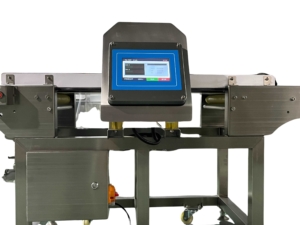What material Cannot be detected by a metal detector?
by Dongguan Jindu Electronic Technology Co.,Ltd
Metal detectors are designed to detect various types of metals and metallic objects, but there are certain materials and substances that they cannot detect due to their composition or properties. Here’s a breakdown of materials that generally cannot be detected by standard metal detectors:
Non-Metallic Materials:
- Plastic, Rubber, and Glass: These materials are non-metallic and do not contain metals that can induce eddy currents or disrupt electromagnetic fields. Therefore, standard metal detectors cannot detect them.
- Wood and Paper: While some wood and paper products may contain small metallic components like staples or paper clips, the bulk of these materials won’t trigger metal detectors as they lack significant metal content.
Low-Conductivity Metals:
- Aluminum, Brass, and Copper: Certain types of metal, like aluminum, brass, and copper, have lower electrical conductivity compared to ferrous metals (iron-based metals). Standard metal detectors may struggle to detect these materials, especially in small or thin forms, as their eddy currents might be weaker.
Insufficient Metal Thickness or Size:
- Microscopic or Extremely Thin Metals: Metal detectors are designed to detect larger pieces or objects with sufficient mass or thickness to induce eddy currents significant enough for detection. Extremely thin foils or microscopic metal particles might not trigger the detector due to their minimal impact on the electromagnetic field.
Non-Ferrous Metals:
- Stainless Steel: Stainless steel is primarily composed of iron but also contains chromium, nickel, and other alloys. Some stainless steel grades have low magnetic permeability, making them less susceptible to detection by standard metal detectors.
Distance and Orientation:
- Distance and Orientation of the Object: The effectiveness of metal detectors can be influenced by the distance between the detector and the metal object. Additionally, the orientation of the metal concerning the detector’s coils can affect the detection sensitivity. Objects positioned too far from the detector or oriented in specific ways might not trigger detection.
Specific Metal Detector Limitations:
- Detector Sensitivity and Settings: Some metal detectors might have limitations in their sensitivity levels or might not be tuned to detect specific types of metals or sizes of metal objects. Adjustments in sensitivity settings may be required to detect certain materials effectively.
While standard metal detectors have limitations in detecting non-metallic materials and specific types of metals, advanced technology, and specialized detectors have been developed to address some of these limitations. For instance, X-ray inspection systems can identify a broader range of materials, including non-metallic contaminants such as stones, bones, and dense plastics, providing a more comprehensive inspection in certain industries like food processing and pharmaceuticals. Magnetic resonance imaging (MRI) and other advanced imaging techniques also offer detection capabilities beyond traditional metal detectors, especially in medical and security applications.
Looking for a Metal detector machine for your products?
We had it all!
Metal Detector
( Click for more information)
Industrial Food Grade Metal Detector, Garment Textile Needle Detector Machine, Checkweigher Manufacturer in China Since 2012. Your reliable and trusted inspection equipment manufacturer for food & textile industry.
Products
Food Metal Detector
Foil Aluminum Metal Detector
Textile Metal Needle Detector
Checkweigher
Weighing Sorter Machine
SUPPORT
Contact Us
As for a Quote
As for Catalog 2023
FAQs
@ 2023 Jindu Machine Copyright-All Rights Reserved




